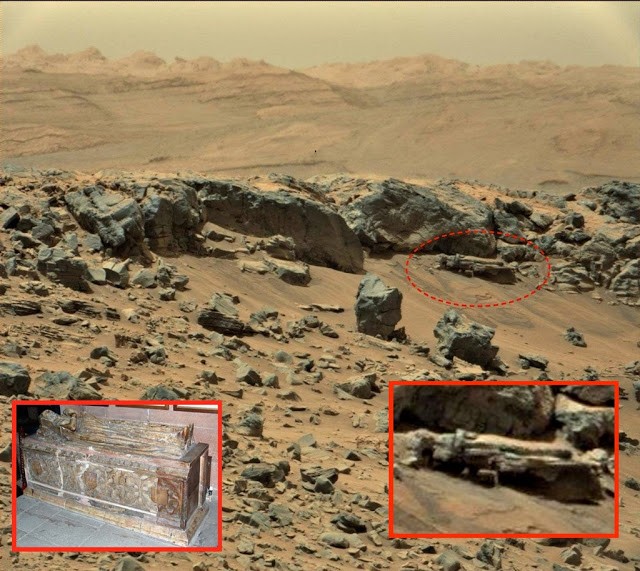In a posting on Friday at Ufosightingsdaily, Scott Waring, the news portal's editor, claims to have spotted an ancient tomb on Mars from images taken by the National Aeronautics and Space Administration's (NASA) Curiosity Rover.
He identifies the photo as Sol 710 taken at the Gale Crater of the red planet. He says he added the color pink to the ancient tomb for people to spot it easily.
Waring adds, "The body of the person is in pink with orange hair. The arms are folded in front of its chest just like many of the tomb pictures on Earth. It has a cloak over its shoulders, so I made it blue."
He continues, "The flat part of the tomb box itself I made yellow, which is the cover for the tomb. The box itself is 40% buried below the dirt. There is also a small face I made pink above the tomb on the hill."
Waring is the same UFOlogist who claimed last week that he also spotted a statue of Buddha on Mars, also based on pictures from Curiosity Rover. He claims the image "shows a face and head turned to its right, with breasts and a plump stomach, shoulders," quotes ABC.
He adds that the photo should convince the UN that "intelligent life once existed on Mars."
However, neurologists explain these sightings to pareidolia. A neuroscientist, Joel Voss, point out that happens because the human mind tries to turn unknown images into something familiar, traced to the brain's lazy sensory-motor cortex, reports Gizmondo.
Voss published a scientific paper on pareidolia in the Oxford Journal. He says the brain is not very skeptical when processing what it sees. Rather, "it goes for the path of least resistance when presented with visual cues, and actively tries to recognize familiar shapes," quotes Vice.com.
It also explains why some people see images of famous persons such as Elvis Presley or Jesus Christ on a potato chip or grilled cheese sandwich. And why people continue seeing other images such as rats, mermaids and even acts of sorcery on Mars.



























